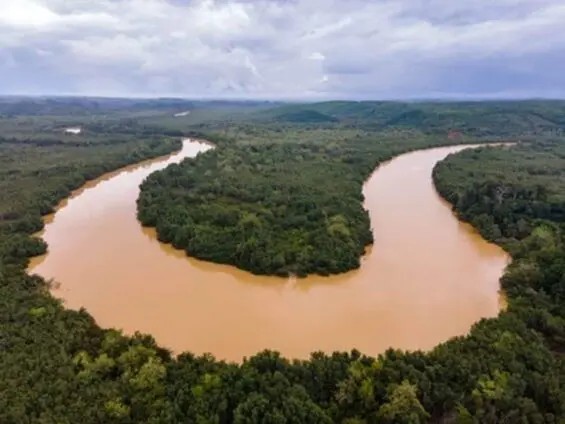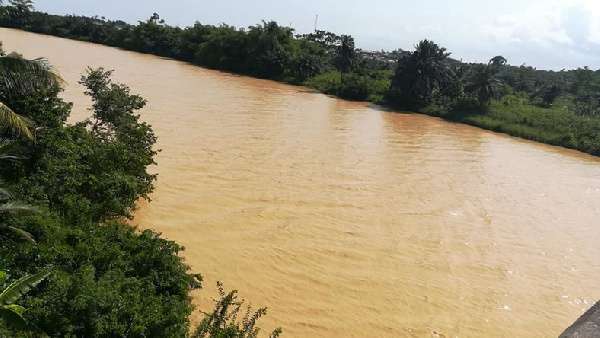The quality of Ghana’s water resources has been deteriorating significantly, primarily due to illegal mining activities. Rivers that once provided safe drinking water for millions are now contaminated with dangerous levels of heavy metals, including mercury and lead.
These toxic substances, identified among the world’s most hazardous chemicals, pose grave health risks.
The Council for Scientific and Industrial Research (CSIR) Water Research Institute in Accra is currently testing samples from polluted rivers to assess their turbidity and contamination levels.
Fresh samples from water bodies such as the Pra, Daboase, Pwalugu, Konongo, Dunkwa, and the Black Volta have revealed shocking results.
First, a sample of crystal-clear water, which qualifies as a potable water was tested, serving as a baseline, and it recorded a nephelometric turbidity unit (NTU) of 0.0094, well within the World Health Organization’s (WHO) standard of less than 5 NTU for drinking water.
However, the stark contrast was evident when researchers tested water samples from River Pra, taken at Daboase in the Western Region. The findings were alarming.
During the test, there were significant levels of heavy metal contamination, so the sample had to be diluted to get the actual value.
The results for the turbidity test for River Pra was about 17,550 NTU—higher than Ghana Water Company Limited’s required standard of 2,000 NTU for adequate treatment, noted by the CSIR researchers. This further underscores the severity of pollution caused by illegal mining activities.
However, Mercury and lead, often leached into water bodies from mining activities, are recognized as some of the most dangerous pollutants.
Meanwhile, the WHO ranks mercury among the top 10 chemicals of major public health concern, while lead exposure was linked to over 1.5 million deaths globally in 2021, primarily due to cardiovascular diseases.

Dr. Collins Kokro, a Cardiologist at the Komfo Anokye Teaching Hospital, highlighted the devastating health consequences of these heavy metals.
‘Mercury, Lead affect your heart. It gives you heart disease. It makes your heart weak. If you are drinking water, let’s say even the color is clear, what about the elements in it that are going to affect your brain, your heart, [and] your kidneys? These are very serious things. We can’t waste time.”
Dr. Collins Kokro Cardiologist, Komfo Anokye Teaching Hospital
Moreover, the environmental and health repercussions of illegal mining extend beyond turbidity levels and heavy metal contamination.
Rivers like the Ankobra and Black Volta, once vital to agriculture and drinking water supply, are now almost unusable. The loss of these resources threatens livelihoods, food security, and public health.
A Call for Action
The ongoing destruction of Ghana’s rivers is a national crisis requiring urgent attention. Health experts and research scientists have issued a stern warning that illegal mining must be halted now or never.
The deteriorating state of Ghana’s water bodies should serve as a wake-up call to the government, authorities and stakeholders to prioritize water resource protection. With the stakes this high, inaction is not an option. Mercury and Lead contamination, as revealed by the recent tests, highlight the urgent need for intervention.
As researchers and health experts call for immediate action, the responsibility lies with policymakers, communities, and enforcement agencies to ensure the preservation of Ghana’s water resources for current and future generations.
READ ALSO; Tiwa Savage Hints at Quitting Music



















